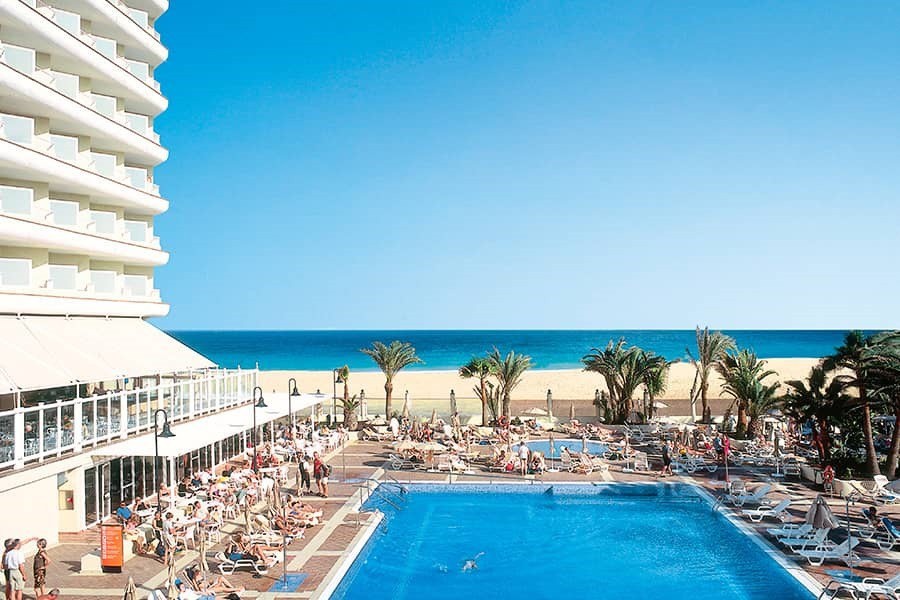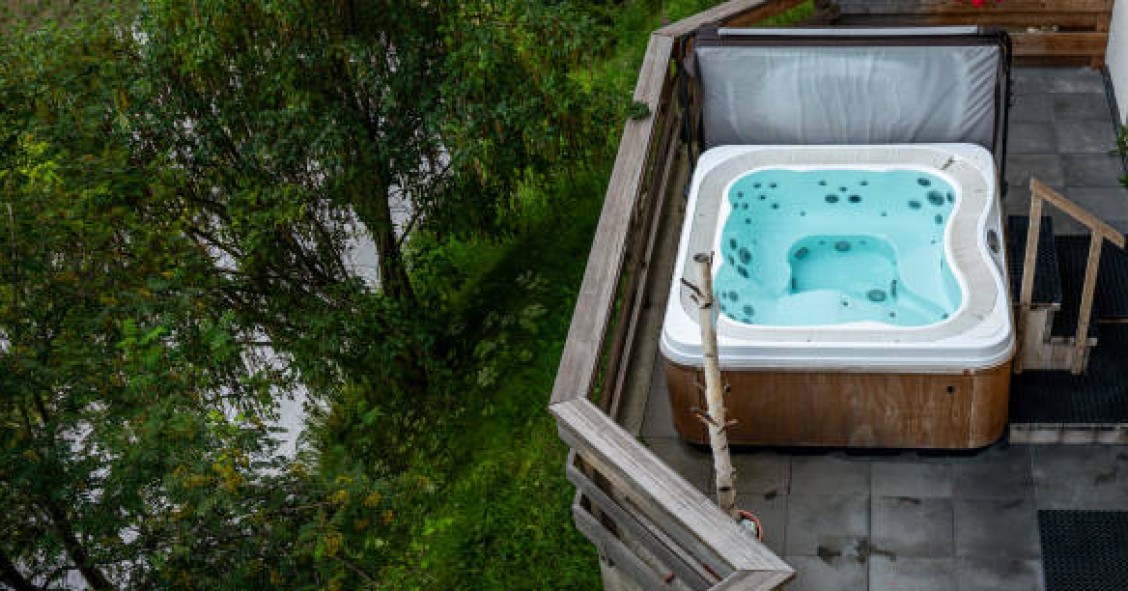
Riu Hotels & Resorts is outraged at the central government's decision to forcibly terminate the Riu Oliva Beach hotel concession on the island of Fuerteventura and order its demolition. In a statement, the Mallorcan hotel chain assures that this is an "arbitrary and unjustified" action and confirms that it will defend its legitimate rights against what it considers "a hostile strategy of this central government department".
On 29 February, the Ministry of Ecological Transition ordered the demolition of the Oliva Beach Hotel and Apartments, located on the Corralejo dunes, Fuerteventura, after declaring that the concession for the occupation and use of the maritime-terrestrial public domain had expired. The concession was granted in June 2003 and was extended until September 2016.
According to Agencia EFE, the Ministry led by Teresa Ribera urged the company Geafond Número Uno Lanzarote S.A. to remove both complexes (the hotel and the holiday apartments) from the maritime-terrestrial public domain. However, it pointed out that the demolition is still awaiting the resolution of the existing problems of the owners not covered by the concession title.
The Ministry's decision can be appealed using an appeal for reconsideration and administrative litigation. It seems the Mallorcan hotel chain Riu will follow that line.
In a statement, the company assures that the ministerial decision lacks "valid arguments", and is part of a "premeditated strategy" to close the hotel, which has always operated legally, thus rejecting accusations of violations and defending its history of regulatory compliance.
The Mallorcan hotel company believes that the Ministry has "manipulated facts" and obstructed the hotel's improvements and insists on defending its rights in all judicial processes that are opened from now on. It also warns of potential economic and social damage for Fuerteventura due to the hotel's possible closure.
The Spanish hotel company believes that the Ministry's decision, headed by Teresa Ribera, to force the expiration of the Fuerteventura hotel concession is an "arbitrary" action, "lacking valid arguments" and part of a "premeditated strategy."
The Mallorcan chain estimates that there is evidence showing that the strategy of the Ministry of Ecological Transition is "premeditated" since it has sought from the beginning to cause the expiration of a concession in force for the use of hotel facilities that remained in the public domain and, with this, "the closure of a facility that has always carried out its activity in full legality and with full respect for the regulations regarding the legislation that regulates the management of the coast, as well as any other urban and environmental considerations."
As justified, part of the Ministry of Ecological Transition's strategy has focused on arguing the commission of infractions by Riu, but the hotel company highlights that it has historically respected regulations and distances itself from any infraction attributed to it.
Riu assures that the central government department's resolution is based on "false, disproportionate and incomplete arguments" and misrepresents the physical reality of the property and object of the concession. "In no case is it true that greater public domain space than that referred to in the scope of the concession has been occupied, as argued in the file opened by the Ministry of Ecological Transition," the hotel company highlights.
In the same way, it assures that it is "false" that there are unauthorised uses within the concession's scope since all those mentioned in the file, as is the case of the bazaar, "are complementary uses that are consolidated and common in the hotel facility."
It also recalls that, following the transfer of the powers of Costas to the Autonomous Community of the Canary Islands, the body does not have legal authority.
Premeditated strategy
The hotel company considers that the attitude of the Ministry of Ecological Transition is "scandalous" and that it is the culmination of a premeditated strategy, which started in 2018 intending to force the concession's expiration.
Riu argues that this decision was predetermined in advance and that the necessary arguments were sought subsequently "with a clear manipulation of the facts."
The chain denounces that they have been hindered from any action by the hotel company to improve the hotel's facilities, "delaying the resolution on the authorisation of the requested works for years and subsequently challenging the authorisation granted by the Canary Islands Government, once the Coastal Authorities' powers were transferred". Even, the company emphasises, "they have tried to annul the concession with an ex officio review that ended up being archived due to lack of support from the State Attorney's Office."
The cancellation process for infringements in the concession, which Riu considers "inflated and manipulated", initiated by the Ministry of Ecological Transition, has been taken "with a speed that suggests a deliberate interest". It recalls that to do so, it had to defy his own actions, such as transferring the Coastal Authority's powers to the Canary Islands government.
Economic and social impact on Fuerteventura
Riu also warns of the significant economic and social damage that closing an establishment with 52 years of history could cause for the island of Fuerteventura.
The establishment was built in 1972 in the municipality of La Oliva, in the north of Fuerteventura and became a hotel of the RIU chain in 1995.
According to the hotel company, Oliva Beach not only played a transcendental role in Fuerteventura's development, "creating hundreds of jobs, providing training and generating wealth for the islands' towns and villages", but also paved the way by becoming a "benchmark of international tourism" leading the image of excellence of the Fuerteventura and Canary Islands destination in the world.
Today, the hotel still plays an important role in La Oliva's society and on the whole island of Fuerteventura, creating 600 jobs, directly or indirectly.
Riu warns of the danger to jobs and the damage to the productive fabric of the north of Fuerteventura. As a point of reference, the chain wishes to point out that Riu Oliva Beach and its neighbouring Riu Palace Tres Islas guests alone move 1.5 planes a day to Fuerteventura, with an economic impact of €13.6 million a year in turnover for the island of Fuerteventura, according to official data collected by the La Oliva town council.
The real economic impact for the island of Fuerteventura exceeds €27 million if we add hotel guests' spending in the destination throughout the year.
Riu will defend its rights
Riu defends its "unblemished reputation" in almost a hundred hotels in 21 countries. It also denounces that it feels "victimised" by the Ministry's attitude and insists on defending its rights. It also recalls that numerous institutions on the island, economic and social agents, entrepreneurs and trade unions have already shown unwavering support for Oliva Beach's future.
Finally, regarding the lawsuit filed by Riu against the three high-ranking ministerial officials related to processing the review, sanction and expiry of the hotel concession, the chain considers that it was "necessary action" to defend its legitimate rights and recalls that its admission was defended "to the end" by the various prosecutors who participated in the case.
Riu concludes that it "respects and trusts the rule of law" and reiterates that it will defend itself in all legal proceedings that are opened from now on.






